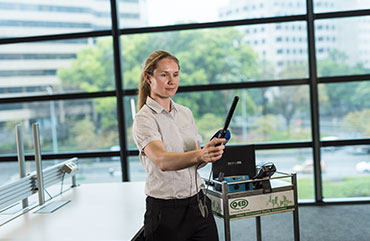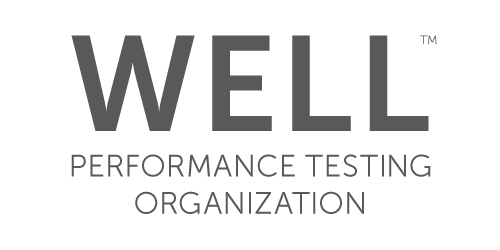Building Facade Testing & Compliance (Combustible Cladding)
Building façade systems, or building cladding, may require independent testing for weather performance, air permeability or fire safety.
QED Environmental Services provides testing services for facades on new or existing buildings, whether the façade is fitted from inception or retrofitted.
Building facades constructed from aluminium composite panels (ACPs) may present a risk in the case of fire. The ACPs on many existing buildings are unlikely to be judged non-combustible under Australian Standard 1530.1. However, this is not to say buildings are not compliant with Building Code of Australia (BCA) as this will depend on certification of the ACP material, or the degree of fire retardant in the ACP core and other fire engineering factors in the building’s design and operation.
Identifying the materials is the initial step required to assist Certified/Accredited Fire Safety Engineer’s to conduct a Risk Assessment. Where the building materials are unknown from inadequate building documentation, QED conducts façade material assessments where the building materials are sampled, laboratory analysed and evaluated against the Insurance Council of Australia (ICA) Residual Hazard Identification Protocol. The process involves testing a small sample of ACP from the subject building to determine the composition of its core material and an indication of its fire-retardant potential through various analyses including destructive testing. Note this is not testing to AS 15301.1 itself.
The outcome of the material assessment assists Certified/Accredited Fire Safety Engineer’s to conduct a Risk Assessment and formulate an opinion on the suitability or otherwise of the ACPs based on requirements outlined in the Building Code of Australia (BCA) and any remedial action required which in our experience rarely comprises complete removal of the façade but may entail alternative fire safety or engineered solutions.
Our customers have taken the initiative to assure themselves of ACP façade compliance across their portfolios, undertaking best practice risk management, assisting with tenant engagement and expediting insurance renewals.
Watch the video below for more information on how we undertake building cladding testing. To book your consultation please contact us.
Building Air Permeability Testing
Building fabric that allows uncontrolled air flow - leaky buildings - can lead to increased energy usage and poor air quality from pollution or moisture ingress. The measure of air leakage (air tightness or air permeability) in a building may also be used as a surrogate measure of build quality.
As buildings become more and more energy efficient, the greater the percentage of energy consumption may be due to air leakage, and therefore the importance of air permeability and building air tightness will increase over time.
For instance mandatory efficiency rating of new buildings in Britain includes verification of the building fabric air tightness. QED conducts air permeability testing in buildings to assist in predicting NABERS energy ratings, air permeability being a key variable in building energy simulations.
Our staff has been trained in procedures for following the ATTMA Technical Standard L2, The Air Tightness Testing & Measurement Association, October 2010.
For more information, or to book your consultation contact us today.

















